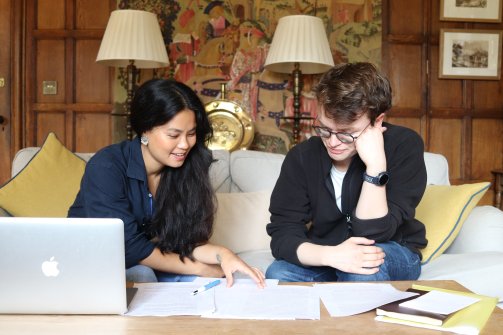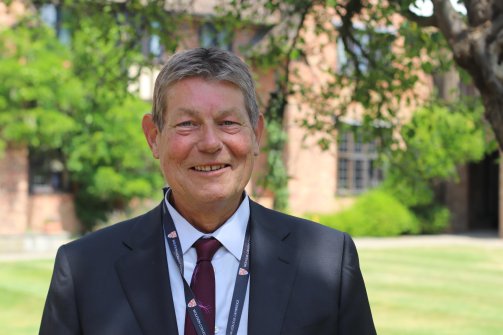New Press Fellows arrive at Wolfson

by Aliandra Lazzari Barlete
What's it really like to prepare for a viva? In this blog, first published on the FERSA website, Ali Barlete takes you through the steps that helped her to get ready - with a little help from a Wolfson baby!
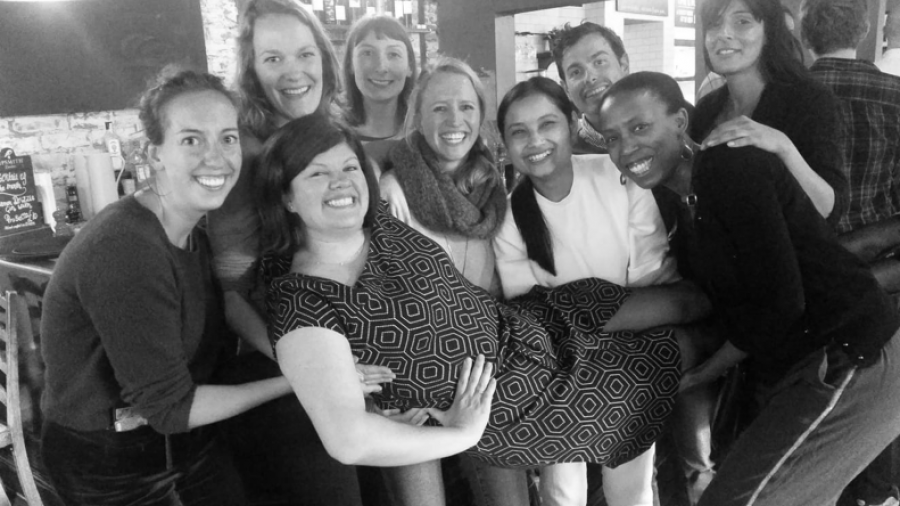
02 May 2019, 11am. I hit the treadmill at the College’s gym. My PhD viva is scheduled to start at 2pm. My anxiety levels skyrocketed, and I need to make sure all this adrenaline dissipates somehow. I run for 15 minutes. I focus on my chosen mantra for the day: “Don’t embarrass yourself today, Aliandra. Not today.”
The running helps – probably the mantra, too. After getting ready, I go to have lunch at the cafeteria, yet I could not finish my food. If you know me at all, you will know something is wrong: I am a girl who eats. I walk to the venue of the viva in company of a dear friend and a curious baby. “There is nothing else I can do now”, I explain to my friend and to myself after the warm good luck hug. I breathe deeply and stop by Fitzbillies to get tea and a couple of Chelsea buns, thinking they could cheer me up in case the viva goes really bad and lasts for three hours. I dropped the tea on the floor within five seconds of leaving the shop. I never touched the buns. To cut on the suspense, the viva went well. I passed.
The days building up to my viva were (sadly for me!) quite different from those of some of my colleagues. My timeline was tight. My viva was 4 weeks after submission. My supervisor advised: ‘One week of preparation is enough’. Great, I thought, relieved. Then I travelled to Brazil to visit my family for the first time in two years, looking for a break after the thesis’s submission.

Ten days before the big day, I start to visualise the viva during the 20h bus ride from my hometown to São Paulo airport (to help with the countdown: Viva: Day -10). When arriving in SP on Tuesday morning (Day -9), I feel a migraine coming. On the Uber to the airport, I lay down on the back seat. I cannot keep my eyes open. At the airport check-in, the British Airways attendant looks at me with suspicion. “I am not feeling well (point to head) but cannot miss this flight. My PhD viva is next week”, I manage to say. I feel an upcoming explosion in my head, and I become aphasic. The attendant calls someone to take me to the medical station, where I received three meds by IV during one hour. Just before the gate closes, I board the flight, feeling like a diva (migraine-free, at least for now). Yes, I will manage to attend my viva (this is still Viva Day -9).
On Wednesday, I arrive back in Cambridge and find the printed copy of my thesis. I create markers in the text to help me navigate it efficiently and list key concepts and their page numbers on the front page. There is a strange feeling of pride. I start reading the thesis and finding typos. The list of typos grows. By Chapter 3, there are 3 post-its full of them. My migraine kicks in (Migraine Day 2) and I sit alone in the dark (Viva Day -8).

On Thursday, I keep on reading. I discover that an entire paragraph is missing from one of my sections’ conclusions. I cry in disappointment with myself. How many times have I read this thesis? Where did the paragraph go? I cannot sleep (Migraine Day 3, Viva Day -7).
Friday is the day of the Wolfson Research Event. I present my thesis’s results for the first time. No typos take away my confidence; the questions from the audience are pertinent. I think of the viva, and it feels good. I regret not having presented my thesis more often. However, the bright sunny day in the auditorium awakes my headache. I leave the event in the afternoon to sit in the dark (Migraine Day 4, Viva Day -6).
The weekend is reserved to learn about my examiners’ work. I select a few articles related to my thesis topic and make a few notes across my thesis about their ideas. Their different perspectives make me reflect on the ways I could have done my work differently and I imagine possible conversations. I read my analytical chapters with a very critical eye. I am anxious, looking for ‘holes’ and problems; and yet, my analysis makes sense. It is clear and coherent with what I proposed to do, theoretically and empirically. Although the list of typos keeps on growing, I am less scared. No migraine to report (Viva Day -5).
Days -4 and -3 are very important, for this is when I have my mock vivas. The first one is with my supervisors on Sunday afternoon (Day -4) and I manage to list all answers I do not know. It feels good to know what to prepare for the coming days. My supervisors are excellent. They push me to give clear and concise answers to their questions. Moreover, they teach me to say ‘Sorry, this is not a part of my work’. I feel supported. It will work. My second mock viva, on Monday, was way harder. A dear PhD colleague took the time to read the thesis and to create questions I never thought about before, for instance, about the conception of the research, the future of the field, publications, main articles I used… wow. Although surprised, I feel in control, and manage to find my words slowly. I know where things are in the thesis and am able to reply to every question. I somehow feel it is my thesis, and that whatever is inside it, I have control over (sort of, if ignoring the two times when I tried to quit my PhD). Day -2 is all about my contribution, findings, results, relevance. I decide to bake that day, to manage anxiety. My migraine is gone.
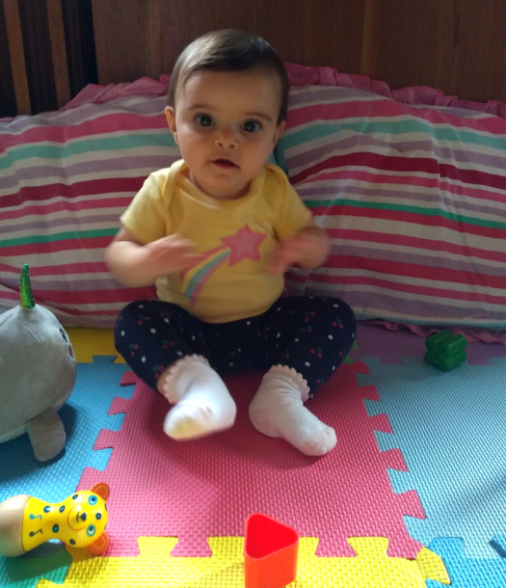
The day before the viva (Day -1), I sit with little Sophia, my borrowed niece, to relax and to practice answering possible viva questions. Later that day, my dear friends arrive from Finland to offer their support on the big day. I feel at peace. They were part of my PhD trajectory from when I started the PhD at the University of Bristol in 2015, and were a constant source of encouragement during this rollercoaster ride. I am grateful they are here and want to cry when I see them. “I can’t even look at my thesis anymore”, I confess over dinner. “Great, then you’re ready”, I hear back. It has no logic, but I trust them. I return home to see messages of support pouring in on the phone. I feel overwhelmed and cry. ‘I think I am ready’.
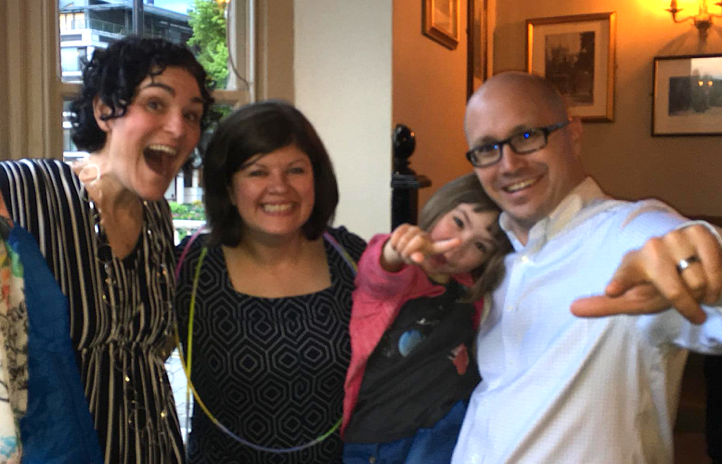
Aliandra Lazzari Barlete has recently concluded a PhD in Sociology of Education at the Faculty of Education. Her research approaches the shape of higher education projects in international regional organisations, with a focus on Latin American regionalisms.
Note: This blog entry was first published on the FERSA Blog run by graduate students at the Faculty of Education in Cambridge.






